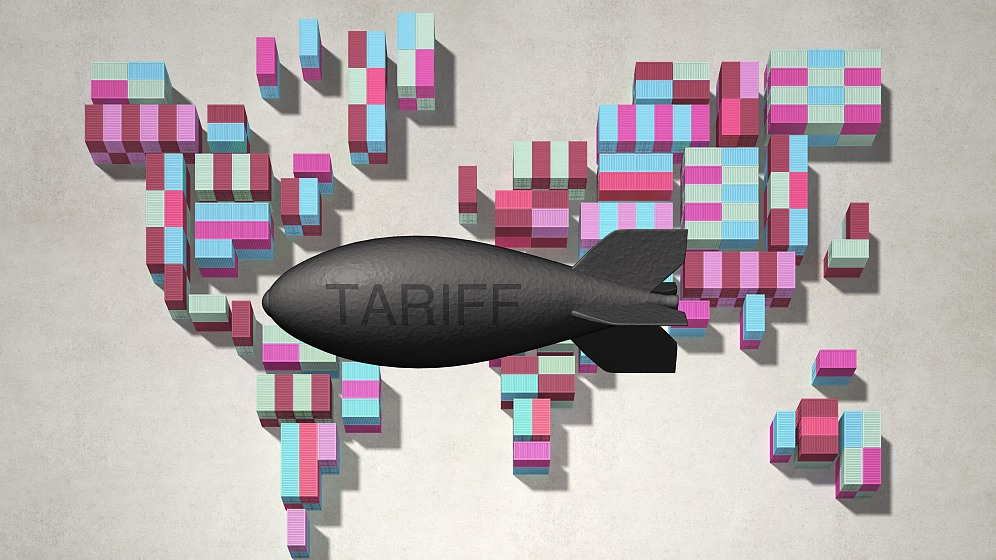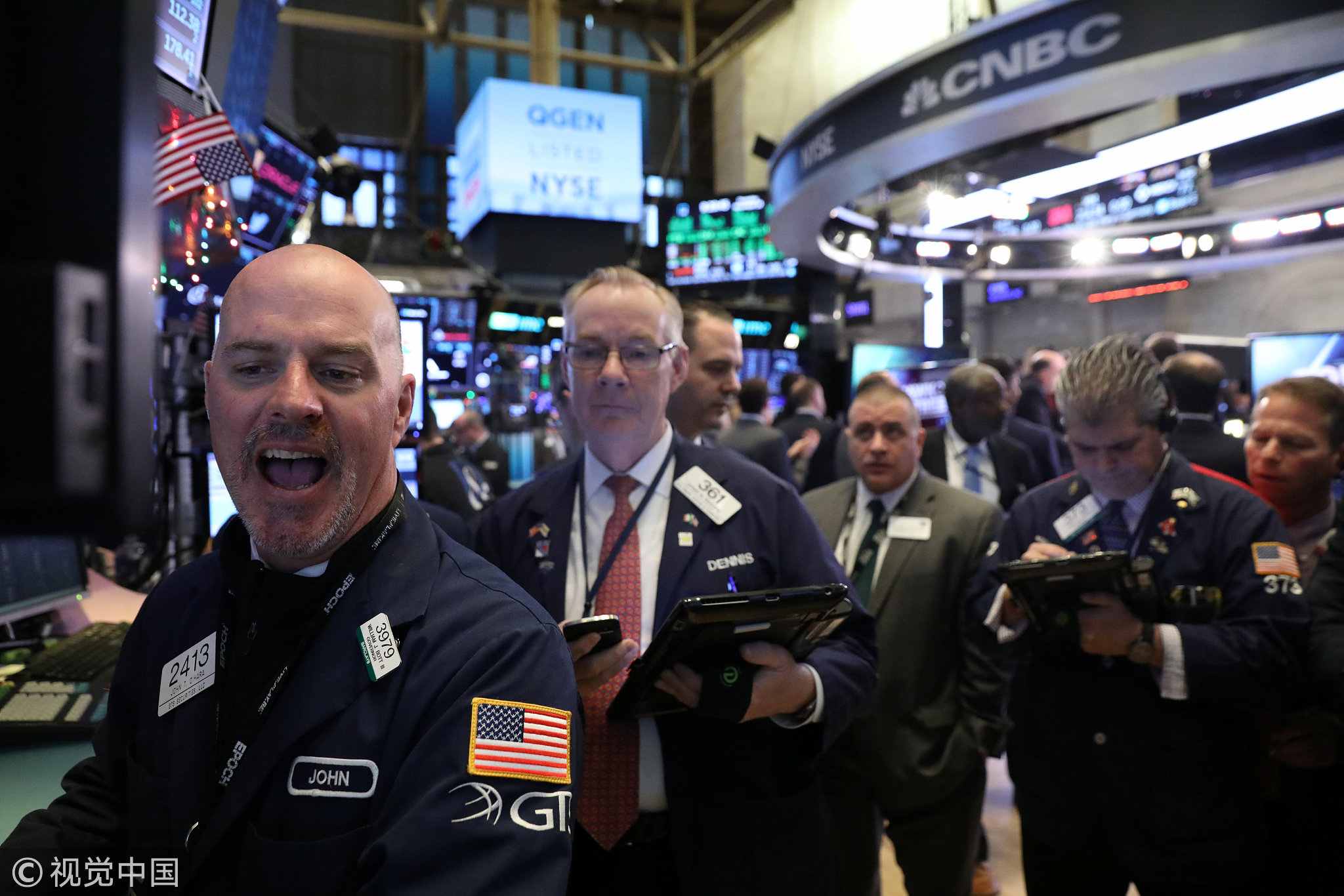
Opinion
08:28, 07-Mar-2019
Can 'tariff man' win with his tariff tactic?
Kong Qingjiang

Editor's note: Kong Qingjiang is dean of the School of International Law under China University of Political Science and Law. The article reflects the author's opinion, and not necessarily the views of CGTN.
Not long after his inauguration as the U.S. president, Donald Trump was nicknamed "Tariff Man."
He unleashed the terror of tariffs (from 10 to 25 percent) against China, which has a trade surplus vis-à-vis the United States.
He even threatened to impose high tariffs – 25 percent on steel imports and 10 percent on aluminum from Canada, Mexico, Japan, the European Union, and South Korea, which are the close allies or free trade partners of the U.S. for decades.
Although some countries were later removed from the list of targeted countries due to the exoneration scheme, the tariff threat upset and even outraged its longstanding allies, and thus jeopardized the U.S. ties with these allies, as some U.S. politicians and analysts pointed out.
By resorting to tariffs, the Trump administration was apparently seeking changes in its trade relationship with its partners, allies or not, to fix what it calls trade abuses or unfair trade.

Corn grows on a farm near Amana, Iowa, July 13, 2018. Farmers in the U.S., who are already faced with decade-low profits, are bracing for the impact a trade war with China may have on their bottom line going forward. /VCG Photo
Corn grows on a farm near Amana, Iowa, July 13, 2018. Farmers in the U.S., who are already faced with decade-low profits, are bracing for the impact a trade war with China may have on their bottom line going forward. /VCG Photo
It seems that Trump believes that tariffs have a magic power. He proudly declared to be a "Tariff Man" days after he and Chinese President Xi Jinping agreed on a 90-day truce for tariff escalation at the G20 Summit in Buenos Aires, Argentina.
To him, it was the tariffs that forced Beijing to the negotiating table. When it came to the trade talk, Trump still warned that his administration will not hesitate to levy further tariffs on Chinese imports should trade talks between the U.S. and China falter.
Trump's stated purpose of the tariff imposition is to reduce the trade imbalance, although many economists see it differently. A year has passed since the tariff imposition. So, has the tariff tactic generated the desirable results?
Ironically, to the dismay of Donald Trump, U.S. trade deficit soared to 621 billion U.S. dollars in 2018, the highest in a decade, with an increase of 100 billion U.S. dollars.
China's 2018 trade surplus with the U.S. was its largest in more than a decade, despite the tariff war initiated by the Trump administration against Beijing.
According to Chinese government data, its surplus with the U.S. grew by 17 percent from a year ago to hit 323.32 billion U.S. dollars in 2018 – the highest on record dating to 2006, according to Reuters.

Traders work on the floor at the New York Stock Exchange (NYSE) in New York City, U.S., November 29, 2018. /VCG Photo
Traders work on the floor at the New York Stock Exchange (NYSE) in New York City, U.S., November 29, 2018. /VCG Photo
The deficit that the U.S. has with China, which was closely watched amid the tariff war between the two countries, is likely even bigger than these figures, which sometimes excludes goods that end up in the U.S. via other countries and regions.
As a matter of fact, at the outset of Trump's threat of tariff imposition, his tariff tactic stoked fierce opposition among its trade partners, among free-trade advocates, even among Mr. Trump's Republican comrades. Trump proudly tweeted "We are right now taking in billions U.S. dollars in Tariffs".
"MAKE AMERICA RICH AGAIN", many viewed tariffs as taxes on American families and consumers. Although the opposition persists, stubborn Trump is bent on having his own way. The surge of trade deficit along with the tariff war turns out to be a setback to Trump's tactics. If only the numbers emerging out of the U.S. trade with its partners would have a sobering effect on the "Tariff Man".
(If you want to contribute and have specific expertise, please contact us at opinions@cgtn.com.)

SITEMAP
Copyright © 2018 CGTN. Beijing ICP prepared NO.16065310-3
Copyright © 2018 CGTN. Beijing ICP prepared NO.16065310-3